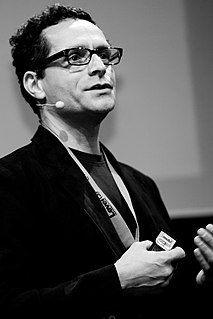A Quote by Jeff Jarvis
Life is a beta. Voltaire said that the perfect is the enemy of the good. Google lives the rule as it introduces every new product as a beta. That is Google's way to say that it trusts us to help it finish its products. It is Google's way to open up its design process to our wisdom.
Related Quotes
Google Now is one of those products that to many users doesn't seem like a product at all. It is instead the experience one has when you use the Google Search application on your Android or iPhone device (it's consistently a top free app on the iTunes charts). You probably know it as Google search, but it's far, far more than that.
Stop looking at the Web as merely a display opportunity and not a way to interact. That does not create a new business model, it just shifts one that isn't growing and is outdated. The reason sites like Google are stealing advertisers from daily newspapers is not because Google has more eyeballs. It's because Google used the interactivity of the Web to deliver a new, better way to advertise.
I wish that Google would realize its own power in the cause of free speech. The debate has been often held about Google's role in acceding to the Chinese government's demands to censor search results. Google says that it is better to have a hampered internet than no internet at all. I believe that if the Chinese people were threatened with no Google, they might even rise up and demand free speech - free search and links - from their regime. Google lives and profits by free speech and must use its considerable power to become a better guardian of it.































